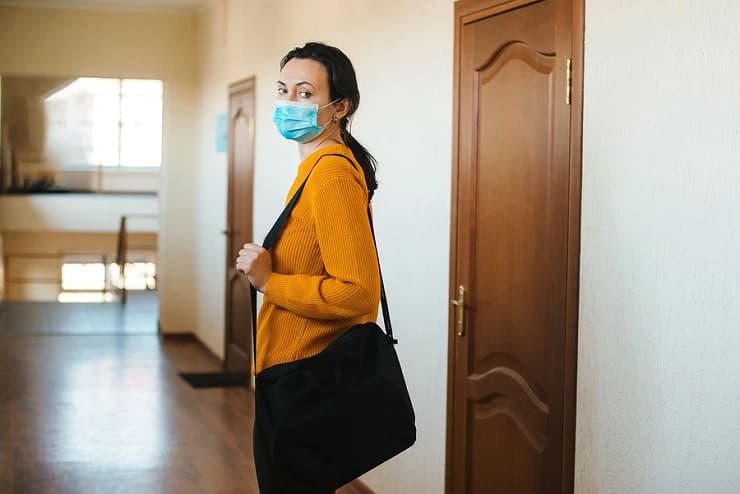COVID-19 may be a threat for the foreseeable future. As a result, we must find ways to adapt to this new normal. For real estate brokerage firms, this means taking steps to protect brokers and clients from exposure to the coronavirus. It also means watching out for wire fraud and other scams that have increased during the pandemic. Below are some tips to help you manage COVID-19 exposures.
Real Estate Activities and Social Distancing
In many states, real estate activities are considered essential and allowed to continue – with social distancing measures in place. Real estate brokers should refer to state and local orders, CDC and other health authority guidelines, and industry best practices.
- Many precautions are needed to keep brokers and clients healthy. For example: Conduct work remotely whenever possible. For example, meetings can be done using video conferencing.
- It may not be possible to hold normal open houses while adhering to local stay-at-home orders. This Curbed article shows how some real estate agents are using virtual tours instead.
- When meeting in person, practice social distancing. Try to maintain a distance of at least six feet. The CDC also recommends the use of cloth face coverings.
- Wash your hands. Use soap and water for 20 seconds. If soap and water are not available, use alcohol-based hand sanitizer. Provide supplies for clients as needed.
- Clean and disinfect frequently touched surfaces regularly. This includes doorknobs.
- Check with your local and state governments for restrictions and additional guidelines.
Remote Transactions
Conducting work remotely can help keep us safe from the coronavirus, but it can also make real estate transactions more difficult.
Getting documents notarized, for example, is more complicated under stay-at-home orders. Some people have been turning to remote notarization, where allowed, to deal with this issue. According to the American Bar Association, multiple states have loosened laws regarding remote notarization in light of COVID-19.
Remote work can also make firms more vulnerable to cybersecurity exposures. Your employees’ home offices may be lacking some of the internet, device and network security measures that are standard in professional settings. Be sure to educate your team on cyber security best practices and review your commercial insurance coverages to ensure they are still as effective in the current environment with changing policies, procedures and work settings. Some cyber liability policies exclude coverage in remote work settings.
Coronavirus Scams
Real estate wire fraud and mortgage phishing scams have been a problem for a while now, and scammers have been using the fear and upheaval caused by the pandemic to find new ways to trick people out of their money. Real estate professionals should be on high alert.
Brokers can help keep clients safe by warning them about wire transfer fraud and spoofed emails. Instructions for wire transfers should always be confirmed before sending money. See the Consumer Financial Protection Bureau for more tips.
Have real estate risk management questions?


